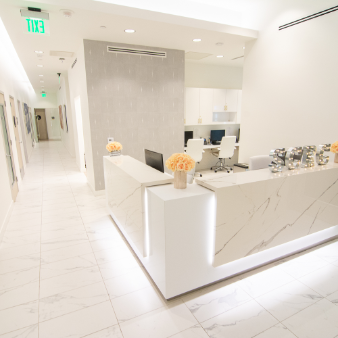
 Egg freezing is rapidly becoming a popular option for women looking for a way to press ”pause” on their fertility, and is getting a lot of media coverage. Companies like Apple and Facebook have started to offer coverage for egg freezing as an employee benefit.
Egg freezing is rapidly becoming a popular option for women looking for a way to press ”pause” on their fertility, and is getting a lot of media coverage. Companies like Apple and Facebook have started to offer coverage for egg freezing as an employee benefit.
For the majority of us whose employers don’t provide coverage, financing plans are becoming increasingly available, putting the cost within reach for many women who might not otherwise consider such an investment. You may be curious about whether egg freezing is the right choice for you, and whether there are any risks you need to keep in mind as you investigate the possibility. Is freezing your eggs a safe process?
{{cta(‘3ca81ccb-69fa-4330-aeb8-ffca7de40bca’)}}
What are the risks of freezing your eggs?
The first baby conceived with previously frozen eggs was born in 1984, and in the decades since, improvements and advances have made egg freezing a straightforward and routine part of fertility treatment in clinics around the world. For most women, the process is extremely safe and severe side effects are very rare. Like any medical procedure, there is a chance of complications, but the risks overall are low. Here’s what you need to look out for:
- Ovarian Hyperstimulation Syndrome (OHSS): Practically, an egg-freezing cycle is the same as the first half of an IVF cycle. You will usually take a course of fertility medication designed to stimulate your ovaries to mature more eggs than usual, in preparation for the egg retrieval procedure. In rare cases, the ovaries can be over stimulated, resulting in symptoms such as abdominal pain, bloating, and nausea. When OHSS does happen, it is usually mild, and the discomfort resolves on its own, but very rarely it can develop into a more severe form, causing vomiting, a buildup of fluid in the abdomen and shortness of breath, and requiring immediate medical treatment. With careful dosing and monitoring however, most cases of OHSS can be avoided.
- Egg retrieval complications: After your course of fertility medications, you will receive a “trigger shot” which induces final maturation of eggs. About 36 hours later, you will visit the fertility clinic for the egg retrieval, a short procedure performed under light sedation. The anesthetic used is about the same as that used by dentists for wisdom tooth extractions, but in very rare cases there may be complications related to the anesthesia. Bleeding or infection as a result of the procedure are also extremely rare side effects.
- Emotional Risks: Egg freezing is a wonderful way to improve your odds of being able to become pregnant when you are ready, but there are no guarantees in medicine. You do not want to go into the decision with unrealistic expectations or false hope. Freezing your eggs will improve your chances of being able to have a baby later in life, but if it does not work out, it can be a challenge to work through the disappointment.
Throughout your egg freezing cycle, you’ll be carefully watched by your clinic team to make sure you’re responding well to the medications and procedure. You should feel completely comfortable going to your doctor with any questions or concerns at any point in the process.
Understanding all the possible risks of egg freezing is half the battle. When you know the signs and symptoms and have good communication with your clinic, your doctor will be able to respond quickly. In the very unusual event that you do encounter any medical side effects of egg freezing, there is treatment available.
Why freeze your eggs?
Delaying childbearing into our late thirties and early forties is increasingly common: today nearly a quarter of mothers are between thirty and forty-four years old when they give birth to their first child. Factors such as the strain of growing student loan debt, the demands of establishing a career, and the challenge of finding the perfect relationship often collude to push getting pregnant down the list of priorities in the years when our bodies are at their most fertile. Unfortunately, the biological realities of waiting this long to have a baby can be sobering. Egg quality and quantity begins to decline noticeably in our thirties, with a relentless downwards trend until we hit menopause. Diminished ovarian reserve is the most common cause of female infertility, particularly for women over 35, and poor egg quality can lead to higher incidences of miscarriage and birth defects in babies born to older mothers.
These statistics put women in a tough spot, making it feel as though they are forced to choose between setting up their lives and starting a family. Happily, advances in fertility medicine and technology have opened up new avenues for fertility preservation. Modern flash-freezing and cryogenic storage methods allow eggs to be stored for up to ten years without any significant loss of quality, which means you may be able to buy yourself a decade of time before you need to make a decision about getting pregnant. While no one can promise that egg freezing will guarantee you a baby when the time is right, it is a way to stack the deck in your favor. The chance to freeze your eggs at the time of their highest potential for use on your timeline is an empowering option.
{{cta(‘1871a489-24e7-46c6-94a6-443b57752764′,’justifycenter’)}}



